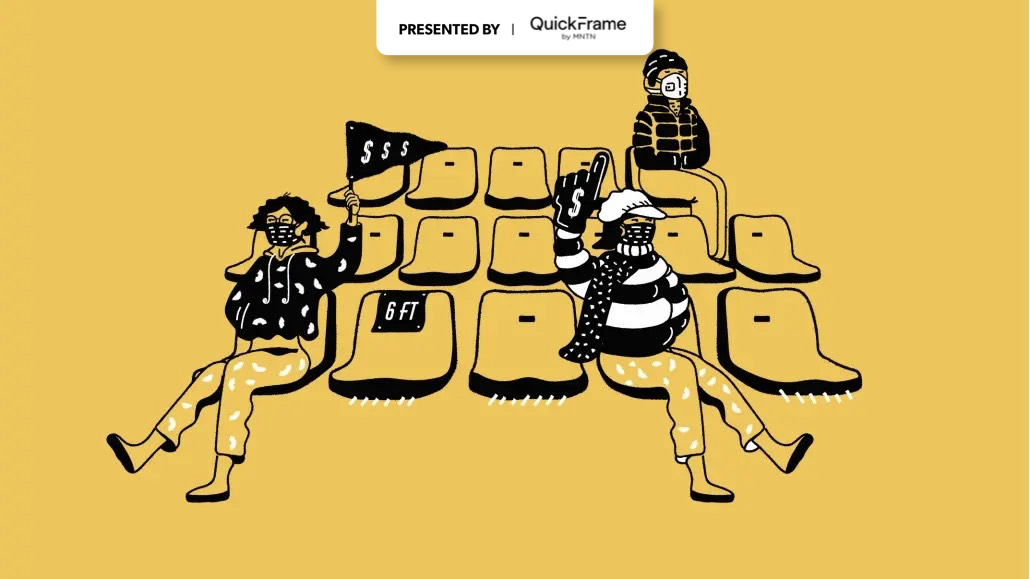Secure your place at the Digiday Media Buying Summit in Nashville, March 2-4
Hyatt, Lacrosse Unlimited, Lulu’s tap college athletes’ authenticity to target Gen Z

As Super Bowl LVII approaches, hotel chain Hyatt is touting its recent partnership with University of Tennessee wide receiver Jalin Hyatt — who happens to have a namesake in common with the brand.
The partnership marks Hyatt’s first deal with a college athlete, and the company will feature the wide receiver in media interviews and social media posts to promote Hyatt’s Phoenix properties before the big game takes place there on Feb. 12.
“More people are looking at brands that align with their values, reward them for loyalty and show up in the spaces where they are or aspire to be,” said Laurie Blair, vice president of global marketing at Hyatt, adding that the chain also worked with Hyatt (the athlete) to provide gift cards for each of his teammates’ families to help pay for hotel rooms during the Orange Bowl held in Miami in December.
Hyatt is just one example of a brand striking up a major partnership with a college athlete to promote a campaign tied to recent and upcoming sporting events. Clothing brand Lulus and sportswear brand Lacrosse Unlimited are also looking to highlight partnerships with college athletes. They are hoping to leverage these athletes to reach out to new consumers, particularly those in the Gen Z cohort.
As a result of the changes to the National Collegiate Athletic Association’s name, image and likeness policy in recent years, college athletes can now partner with brands to capitalize on their influence. This has drawn brands like Hyatt, Lulu’s and Lacrosse to college athletes to boost brand awareness and grow their presence on social media.
“College athletes are celebrities [to] Gen Z,” said Danny Morrissey, co-founder of Postgame, a full-service NIL influencer marketing agency for college athletes. “You don’t want to age out with your consumer, you want to be able to access a younger one.”
Partnering on Gen Z’s level
Despite the current economic climate, the companies said they do not plan on decreasing their influencer advertising budgets. (It’s unclear how much of the brands’ influencer marketing budgets are dedicated to college athletes as they did not disclose those figures.) This is likely due to the fact that these brands want to connect with Gen Z where they spend most of their time — on social media.
As for Hyatt’s recent NIL agreement with University of Tennessee wide receiver Jalin Hyatt, the brand utilized its Instagram, LinkedIn, Twitter and Facebook accounts to promote the partnership and generate engagement in a timely manner. The hotel chain also tapped Hyatt to spread the news of its agreement to be the exclusive hospitality sponsor of the Sundance Film Festival through 2025, which Hyatt (the athlete) shared through his Instagram account and Instagram Stories. “The collaboration just made sense,” said Blair.
Lacrosse Unlimited is also tapping into the NIL space to find ways to appeal to Gen Z via social media with its UNLTD Athletes Program. To do so, the brand recently signed new Lacrosse athletes: mid-fielder Belle Smith from Boston College, and attacker Connor DeSimone from Johns Hopkins University.
As part of the effort, Lacrosse Unlimited is developing each athlete’s social presence to help them showcase the Lacrosse Unlimited products they are currently using on their Instagram and TikTok accounts. In return, the brand promotes its talent through sponsored posts on its own accounts.
“It’s a really good opportunity for us to connect with our consumers on a level where a lot of the kids who play lacrosse really look up to the college athletes,” said Rob Rimmer, Lacrosse Unlimited’s creative director. “It gives us authenticity to that consumer to know that we’re connected with these athletes in that way.”
Tapping athletes’ authentic voices
Lacrosse Unlimited also highlights its talent behind the scenes as well as what they’re currently doing in their everyday lives via social channels. The effort comes as the brand is focusing more on Gen Z, who want to see authenticity and get a close look at who these athletes are outside of their sports via social media. “Our talent is right at that perfect age where everything they’re doing is revolving around their social media and their presence on these social channels,” said Rimmer.
When it comes to promoting Lacrosse Unlimited’s talent on social media, Rimmer said Instagram accounted for 80% of the brand’s ad budget and TikTok accounted for 20%. Instagram was given a higher priority over TikTok because it offers a broader range of images, carousels and videos than TikTok does, noted Rimmer.
For Lulus part, it’s expanding its NIL program this year to include female college athletes as a part of its marketing strategy to target Gen Z shoppers via social media. Doing so is meant to expand the brand’s reach to Gen Z shoppers. (Lulus did not respond to requests for further details about the program.)
As Gen Z consumers continue to question brand trust, marketers and agency leaders believe partnerships with college athletes are a good way to help brands stand out.
“Our talent is right at that perfect age where everything they’re doing is revolving around their social media and their presence on these social channels,” said Rimmer.
More in Marketing

Future of Marketing Briefing: AI’s branding problem is why marketers keep it off the label
The reputational downside is clearer than the branding upside, which makes discretion the safer strategy.

While holdcos build ‘death stars of content,’ indie creative agencies take alternative routes
Indie agencies and the holding company sector were once bound together. The Super Bowl and WPP’s latest remodeling plans show they’re heading in different directions.

How Boll & Branch leverages AI for operational and creative tasks
Boll & Branch first and foremost uses AI to manage workflows across teams.







